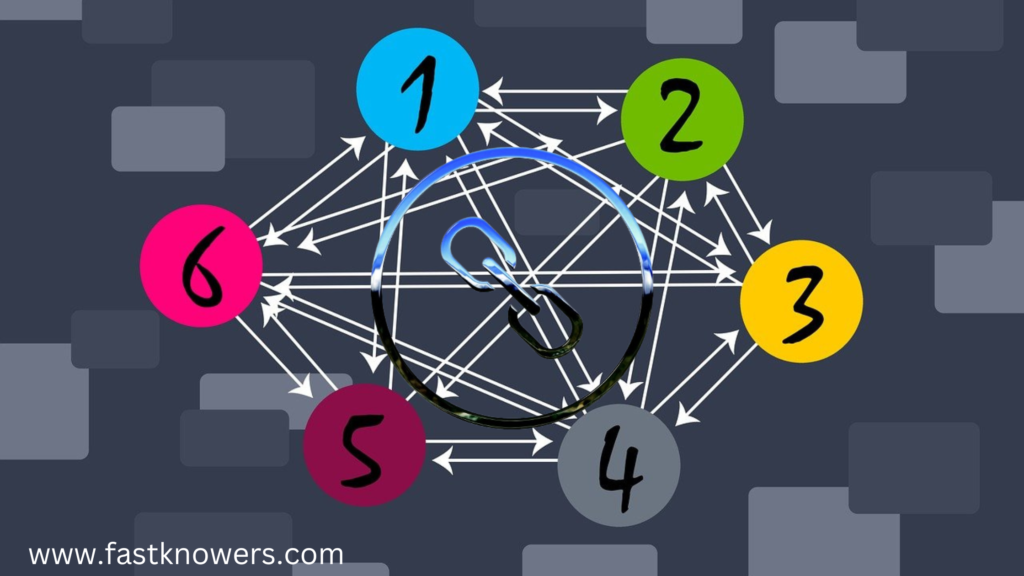
Have you just done up your period or menstruation and searching for how you can perform your janaba bath or ghusl? In this article, I will show you everything step by step.
If you purify yourself in line with Allah’s commandments and the Prophet’s instructions, your worshipping and prayer will be immediately accepted when you are doing it even though you don’t perform ablution. After a semen has discharged from your private part or after you have finished your menstruation, it is ideal and act of worship to carry out or perform janaba bath immediately.
Janaba (جنب) is an Islamic term meaning impure as a result of sexual intercourse, menstruation, child birth or seminal discharge. Any person who is in such a situation needs to take a special bath in order to become pure and be able to perform his prayers and ibadah.
Read this also: how to do Istikhara dua for marriage step by step.
Top eight (8) reasons why you must perform janaba ghusl
Meanwhile, janaba bath must be performed if you pass through any of the following criteria or state:
- Discharge of sperm
- Wet dreams
- After the termination of menses
- After the termination of pro-child birth bleeding (nifaas)
- Penetration of penis in vagina (whether you are ejaculated or not, you must perform janaba ghusl)
- After doing masturbation (please note that masturbation is haram in Islam, thus, do not engage yourself in it. Instead of doing it, you may kindly meet your spouse)
- Being fainted while semen has discharged unintentionally
- While looking at the opposite sex very deeply and the release of semen is done, you must take janaba ghusl, bath, etc.
Many women believe that a woman remains impure after childbirth for a period of 40 days, whereas this is not the case. Please if you are having any issue concerning this; state it in the comment box of this post to enable us know how to give you assisting reply.
Internal and external cleanliness as a word is very pleasing to the ear of human being, and it is a quality which everyone wishes to have. We Muslims are privileged to be pure internally and externally as our religion, Islam is a pure religion.
Islamic purity is a prerequisite to Salaat and other acts of worship; this comprises either ablution (wudu) for small impurity, for example, urination, defecation, flatulence, deep sleep, and light bleeding. Or ceremonial bath (ghusl) for big or major impurity, for example, ejaculation or completion of the menstrual cycle.
Ghusl (Arabic text: غسل) is an Arabic term which means having a bath of a whole body in an Islamic way. This means that janaba ghusl is basically referred to as impurity bath.
Most Moslems today don’t perform janaba ghusl when it is compulsory, i.e, they ignore performing janaba bath after they have masturbated. Although, masturbation is haram and harmful (highly forbidden) but some people are still doing it.
Read this also: list of all health effects of masturbation and how to prevent yourself from doing it.
In other word, ghusl is also recommended but not required (i.e. it is mustahabb) before Jumu’ah (Friday congregation prayer) and Eid prayers, before entering the Ihram in preparation for pilgrimage, after having lost consciousness and after fully converting from other religion to Islam. Some Moslems also perform the ghusl before Prayer of Repentance.
How to perform janaba bath (ghusl) after menstruation step by step

Below are the eleven (11) steps of how to perform janaba bath or ghusl after menstruation or sexual intercourse:
- Start by making intention (niyyah) that you are going to perform janaba Ghusl by saying bismillah (translated as in the name of Allah in English)
- Wash the right hand up to and including the wrist (and between the fingers) three times, then similarly for the left hand
- Wash the private parts and remove dirt or filth from the body
- Perform Wudu as if for prayer. Ensure that the mouth and nostrils are thoroughly rinsed one time.
- If you are sitting on a stool or stone while bathing then the feet should also be washed when performing ablution, but if you are sitting in a muddy place, your feet should not be washed at this stage.
- Pour water all over your head three times in such a way that it can flow all over your body
- Pour water over the both shoulders three times each (starting from the right shoulder).
- Hands should be passed all over the body when water is poured so that no part of the body is left dry
- Move to a clean place and wash the feet if not washed during the first ablution
- As at the end of Wudu (ablution), it is recommended to recite the Shahada which is written in step eleven below
- After performing your janaba bath as we have taught you above, then recite “Ash-hadu-Allah-illaha-illahahu wa-ash-hadu ann-muhamaddan ab-duhu wa rasuluhu”.
Wrong things to do while performing janaba bath or ghusl
While you are performing ghusl janaba, the following things are not allowed (haram) for you to do:
- Do not perform ghusl at a place where anybody is watching you.
- Performing naked ghusl while facing towards the Kaaba is not good
- Do not talk in ghusl even though another person is calling or talking to you
- Doing ghusl opposite to farad ghusl.
- Reciting any verse of the holy book, Quran or any Dua other than Bismillah is prohibited
In Islam, we don’t do things with our own understanding or view, the following revelations was reported by the beloved wives of prophet Muhammed.
Nana Aisha reported that when my husband, Allah’s messenger bathed as a result of sexual intercourse, he first washed his hands; he then poured water with his right hand on his left hand and washed his private parts. He then performed wudu as he normally does for prayer. He then took some water and ran his fingers in the roots of his hair. And when he found that it had been properly moistened, he poured three handfuls on his head and then poured water over his body and subsequently washed his feet.
Similarly, Nana Maymuna reported that she placed water near the Messenger of Allah (her husband) to take a janaba bath because of sexual intercourse. He washed the palms of his hands twice or thrice and then put his hand in the basin and poured water over his body then struck hand against the earth and rubbed it with force and then performed ablution for the prayer and then poured three handfuls of water on his head and then washed his whole body after which he moved aside from that place and washed his feet, and then I brought a towel (so that he may wipe his body), but he returned it.
Methods of performing janaba ghusl for menstruation or seminal discharge
There are two main methods which you can use to perform janaba bath and they are listed and explained below:
1. Ghusl tartibi
Ghusl tartibi means an ordinal bath and it can be performed in three stages.
After you have washed away the semen or blood from your private part and made your intention, then your body has to be washed in three stages: head down to the neck; then the right side of the body from the shoulder down to the foot and the left side of the body as we have explained above.
Each part should be washed thoroughly in such a way that the water reaches the skin. Special care should be taken while washing the head; the hair should be combed (e.g., with your fingers) so that water reaches the hair-roots. While washing the right side of the body, some part of the left side must be washed too, and vice versa
2. Ghusl irtimasi
This means a bath that is involved in immersing the whole body in water. It can only be done in a body of water, e.g., a pool, river, lake or sea.
After washing away the semen or blood from the body and after an intention, the whole body should be completely immersed in the water all at once, not gradually. You have to make sure that the water reaches all parts of the body, including hair and the skin under it.
In conclusion, Ghusl tartibi is preferred to ghusl irtimasi. Now, which one is easier for you? Please let me know through the comment box.
Conclusion
If you know that this article has helped you know how to perform janaba ghusl or bath, please share it with your friends and do not forget to like our facebook page or subscribe to our newsletter for more future important updates.
Before you leave, let me let you remember what Allah has said in chapter four verse forty-three (4:43) of holy Quran.
Arabic text:
يٰۤـاَيُّهَا الَّذِيۡنَ اٰمَنُوۡا لَا تَقۡرَبُوا الصَّلٰوةَ وَاَنۡـتُمۡ سُكَارٰى حَتّٰى تَعۡلَمُوۡا مَا تَقُوۡلُوۡنَ وَلَا جُنُبًا اِلَّا عَابِرِىۡ سَبِيۡلٍ حَتّٰى تَغۡتَسِلُوۡا ؕ وَاِنۡ كُنۡتُمۡ مَّرۡضٰۤى اَوۡ عَلٰى سَفَرٍ اَوۡ جَآءَ اَحَدٌ مِّنۡكُمۡ مِّنَ الۡغَآئِطِ اَوۡ لٰمَسۡتُمُ النِّسَآءَ فَلَمۡ تَجِدُوۡا مَآءً فَتَيَمَّمُوۡا صَعِيۡدًا طَيِّبًا فَامۡسَحُوۡا بِوُجُوۡهِكُمۡ وَاَيۡدِيۡكُمۡ ؕ اِنَّ اللّٰهَ كَانَ عَفُوًّا غَفُوۡرًا
Transliteration:
Yaaa aiyuhal lazeena aamanoo laa taqrabus Salaata wa antum sukaaraa hatta ta’lamoo ma taqooloona wa laa junuban illaa ‘aabiree sabeelin hatta taghtasiloo; wa in kuntum mardaaa aw ‘alaa safarin aw jaaa’a ahadum minkum minal ghaaa’iti aw laamastumun nisaaa’a falam tajidoo maaa’an fatayam mamoo sa’eedan taiyiban famsahoo biwujoohikum wa aideekum; innal laaha kaana ‘Afuwwan Ghafooraa.
Meaning in English language:
”O you who have believed, do not approach prayer while you are intoxicated until you know what you are saying or in a state of janabah, except those passing through [a place of prayer], until you have washed [your whole body]. And if you are ill or on a journey or one of you comes from the place of relieving himself or you have contacted women and find no water, then seek clean earth and wipe over your faces and your hands [with it]. Indeed, Allah is ever Pardoning and Forgiving”.
Thank you for reading this article to an end and please come back here in future in order to know how to perform janaba bath after menstruation and hoping for an important update of this article to the next level, insha Allah.
Read this also: top three best and famous islamic prayer centers in Kogi state and how you can locate their admin.




